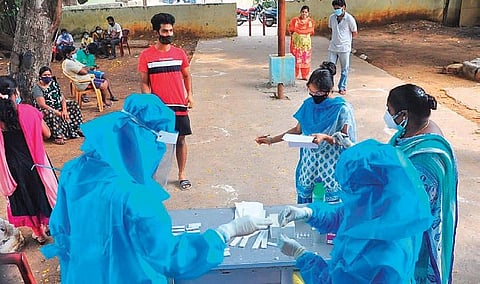

BENGALURU: Levels of antibodies and the duration of immunity vary in people who recover from Covid-19, finds a study published in the Lancet. Titled ‘Dynamics of SARS-CoV-2 neutralising antibody responses and duration of immunity: A Longitudinal Study’ published on March 23, the study monitored neutralising antibodies in patients up to six months after the onset of symptoms.
Dr Ravindra Mehta, senior consultant and head of pulmonology and interventional pulmonology at Apollo Speciality Hospitals, said in some people, antibody levels dropped fast, but lasted longer in others. In some patients, levels fluctuated and in others, antibodies were present for up to six months.“Persistence of neutralising antibodies was associated with disease severity and sustained level of pro-inflammatory cytokines, chemokines and growth factor,” the study stated.
This means that those who had severe infection, with inflammation caused by cytokine storms, were found to have antibodies up to six months, Dr Mehta said. “In people who had milder infection or were asymptomatic, antibody levels were low. However, T-cell immunity, which is long-term cell immunity, was present in people despite neutralising antibodies going away,” he said.
The rate of antibody levels waning suggests reinfection is likely during later waves, limiting the viability of a herd immunity strategy before an effective vaccine, the study stated. “Herd immunity depends on availability of antibodies in a community, but antibodies reduce over a period of time. If the infection is rapid, often T-cells are not able to remember the antibody response as B-cells, which are the neutralising antibodies, take over to fight the present infection,” said Dr Sheela Chakravarthy, director for internal medicine at Fortis Hospitals.
“As we don’t know the response of memory T-cells, it is better to get vaccinated. They will produce neutralising antibodies and booster doses can be given,” she said.The study revealed patients with persistent antibodies were older and had more comorbidities, including hypertension.